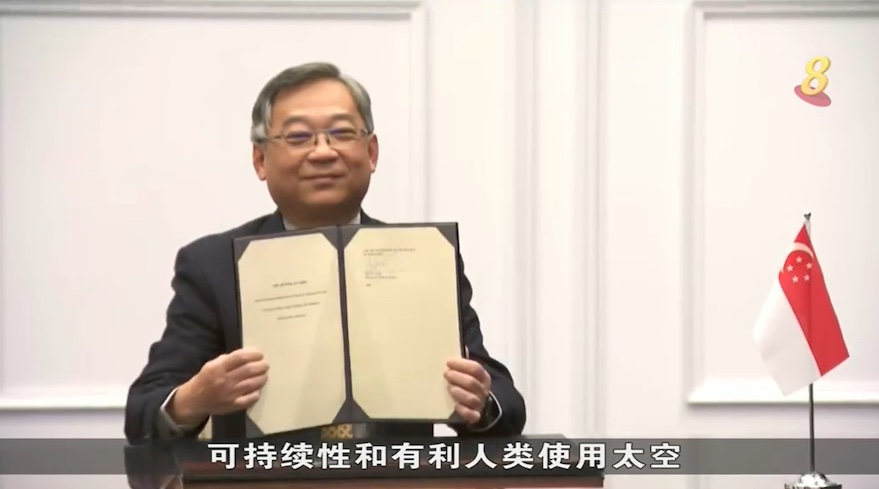SEOUL, South Korea — Singapore has become the 18th country to join the U.S.-led Artemis Accords for space exploration, hoping to use the agreement to enhance its nascent domestic space industry.
Trade and Industry Minister Gan Kim Yong signed the agreement March 28 at the Four Seasons Hotel in Washington, on the sidelines of Prime Minister Lee Hsien Loong’s working visit to the United States. NASA Deputy Administrator Pam Melroy and U.S. State Department principal deputy assistant secretary Jennifer Littlejohn attended the signing ceremony.
“I hope that by joining the Artemis Accords, Singapore will be able to cooperate more closely with like-minded partners like the U.S. to progress the international conversation on the space norms and spur the development of the global space sector,” the trade minister said, according to a transcript published by his office. “I look forward to seeing more exchanges and collaborations among companies, officials and researchers between Singapore and the U.S. as well as other Artemis Accords signatories, leading to a robust space sector in Singapore.”
The minister noted that space-based technologies are important to many civilian and government functions. “We also see strong economic potential in the application of space-based technologies in domains of great interest to us, such as aviation, maritime and the environment. We have therefore been working hard to support the development of our relatively nascent but fast-growing space ecosystem,” he said.
Melroy, a former astronaut and NASA’s No. 2 official, said that space-based technologies represent a high-growth industry around the world, according to Singapore’s The Straits Times newspaper. “The commercial space industry is finding its way into almost every other industry. Those space-based technologies are becoming critical,” Melroy said. “As we go out into the solar system, with humans, with technologies, we find that it is very important to take those norms and behavior, the values that we share… with us.”
Singapore is a relatively new space player, with its space sector having only about 50 companies and 1,000 professionals, according to the country’s national statement to a UN committee in 2021. Singapore’s space sector engages in a range of space-related activities, such as the designing and manufacturing of space components, as well as the provision of satellite-based services.
Last month, Singapore announced a 150 million Singapore dollar ($110 million) investment plan to develop the country’s space capabilities.
